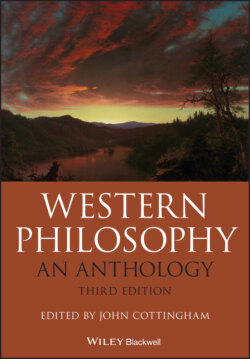Читать книгу Western Philosophy - Группа авторов - Страница 28
Exegesis and Criticism
ОглавлениеThe two indispensable components of a good philosophy essay, particularly if we are talking about an essay on one of the great canonical writers included in this volume, are exegesis and criticism. Exegesis involves expounding or setting out what you take to be the main elements of the position taken up in the text you are studying. These are some of the questions it may be worth asking yourself. What is the author trying to show? Can you paraphrase or summarize it as clearly as possible, leaving out any irrelevant flourishes and concentrating on what is of central importance? Can you explain any unusual or technical terminology? Do you understand what is at stake – why the issues discussed are supposed to be important? It’s no bad thing here to imagine yourself trying to explain to a class or a discussion group, in the simplest possible terms, (a) what you think is being said in the text, and (b) why you find it interesting. If you can’t summarize the author’s position reasonably clearly, you probably need to read it again, if necessary with the aid of the introduction provided, or some of the other recommended commentaries. And if you can’t explain why you find it interesting, your essay will probably end up having a ‘flat’ or ‘routine’ flavour to it. There’s no substitute for getting involved.
This brings us to the second indispensable element in a good philosophy essay, namely criticism. In producing a philosophy essay (and this applies to philosophical writing or discussion at any level), one is not merely aiming to report on the material, or summarize the findings (important though it is that these things are done clearly and accurately). As the Socratic method showed many centuries ago, philosophical inquiry is always to some extent a dialogue – a dialogue in which you are one of the partners. There is no substitute for entering into the argument, reflecting on how you stand in relation to the claims advanced, and exactly why you find some of them persuasive or where you think they go wrong. In doing this, you will be not just reporting on other people’s philosophizing, but will be philosophizing yourself. This is the true excitement of philosophy, and the key to success in reading a philosophical text and writing about it.
But criticism is not just a matter of saying ‘Oh no, I don’t agree with that!’ For example, it’s not an effective criticism of a philosophical position to say ‘This author is obviously a believer, but I am an atheist so I disagree with him’, or ‘this author is obviously an materialist but I disagree with her because I believe there are immaterial entities.’ You are welcome to disagree, but you must give reasoned grounds for your disagreement, and those grounds must be based on detailed scrutiny of the writer’s arguments. The same applies if you end up supporting a given writer. Good criticism in philosophy can include providing supporting arguments as well as offering objections (and indeed one of the most effective ways of proceeding can be to construct a possible objection to a given position, and then go on to offer a possible reply on the author’s behalf). But however you proceed, you always need to offer reasons for your position, keeping the original text in view, and making sure that your reasons bear directly on the position taken up by the author under discussion.
